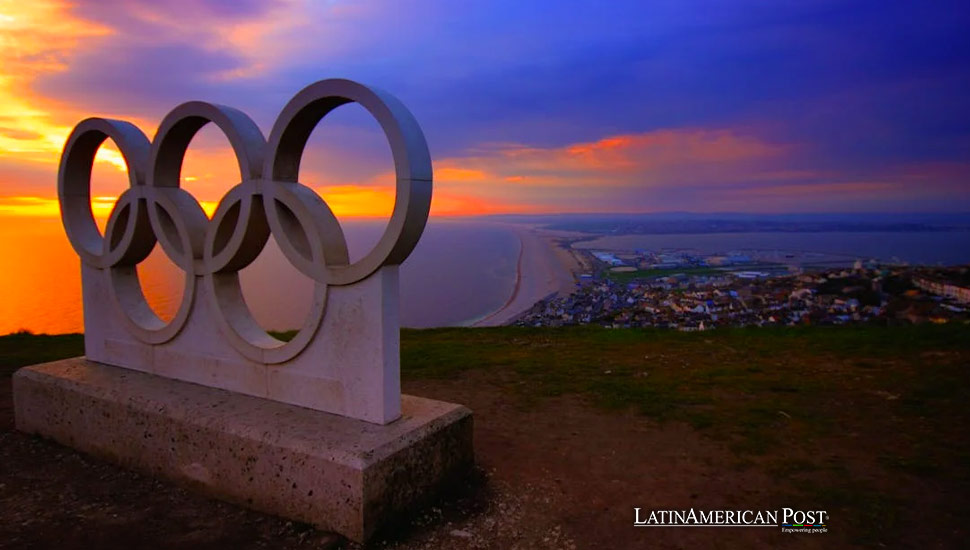New Essential and Exciting Updates for Latin Americans on the Paris Olympics

The Paris Olympics will introduce new sports and events, eliminate others, and reorganize competitions to attract younger audiences. Based on historical and recent performances, these changes could impact Latin American medal prospects.
The upcoming Paris Olympics will see several changes, including introducing new sports and removing others, reflecting a dynamic shift to engage younger audiences. With a program designed for spectacle and excitement, the Games promise to deliver thrilling new experiences alongside traditional favorites. Here are five critical updates Latin American audiences should know about the Paris Olympics and how these changes might affect their medal prospects.
1. Breaking: A New Olympic Sport
One of the most thrilling additions to the Paris Olympics is the inclusion of breaking, also known as breakdancing. The decision to feature this urban dance form underscores the Games’ commitment to embracing diverse cultures and attracting younger audiences. With its roots in the Bronx, New York, breaking has evolved into a global sensation and will take center stage at the Olympics. Given the vibrant urban dance scenes in Brazil, Argentina, and Mexico, this new addition could significantly enhance Latin American medal prospects.
Competitors will gather at the iconic Place de la Concorde on August 9 and 10 to showcase their head spins, flips, and jumps skills. A DJ will play music the dancers have not heard before, challenging them to improvise their routines in one-on-one battles. This new addition highlights the Olympics’ evolving nature, aiming to blend traditional sports with contemporary cultural expressions.
Countries like Brazil, Argentina, and Mexico, with their vibrant urban dance scenes, are well-positioned to excel in breaking. This cultural relevance could translate into solid performances and potential medals, offering a hopeful outlook for Latin American success in the new sports at the Paris Olympics.
2. Disappearing Sports and Events
As breaking makes its debut, other sports will be absent from the Paris Olympics. Karate, which first appeared in Tokyo in 2020, will not continue despite its popularity in France. Additionally, baseball and softball, included in the Tokyo Games, will not be part of the Paris program. However, these sports are expected to return to Los Angeles in 2028.
The absence of baseball and softball, significant for Latin America, means fewer medal opportunities for countries like Cuba, the Dominican Republic, and Venezuela. This underscores the direct impact of the changes on Latin American medal prospects, engaging the audience and highlighting the stakes at the Paris Olympics.
A notable change is removing the 50 km race walk, a staple in athletic competitions. This event will be replaced by a mixed relay race walk covering the marathon distance of 42.195 km. The adjustments reflect the Olympics’ ongoing efforts to innovate and diversify the range of competitions offered. While race walking has succeeded in countries like Ecuador and Mexico, the new mixed relay format will require strategic team coordination and could still provide medal opportunities.
3. New Action-Packed Events: Kayak Cross and Formula Kite
The Paris Olympics will feature the thrilling debut of kayak cross and Formula Kite, promising high-adrenaline action. Kayak cross, part of the canoe slalom program, involves four kayaks launching from a ramp over two meters high, racing through a course that includes an Eskimo roll—a complete 360-degree flip underwater. This event will reduce the number of sprint canoe events from six to five per gender.
In sailing, the Formula Kite event will make its Olympic debut in the waters of Marseille. These high-speed boards, capable of reaching speeds up to 100 km/h, are powered by kites and add a new level of excitement to the sailing competitions. The sailing program maintains its ten events, with the 470 class now being a mixed-gender event, emphasizing gender inclusivity and competition.
Latin American countries like Brazil and Argentina have historically done well in water sports, with Brazil’s success in sailing and Argentina’s strong performances in canoeing. Introducing these new events could provide additional opportunities for medals, particularly as these nations adapt to the latest formats and showcase their prowess in these high-energy sports.
4. Reorganized Weight Classes in Boxing, Weightlifting, and Wrestling
Adjustments in weight classes across several sports aim to address issues such as doping and to ensure fair competition. In boxing, women compete in six weight categories, one more than in Tokyo, while men compete in seven. Weightlifting has seen a reduction in the number of weight classes due to participant quota reductions, now featuring five weight categories per gender instead of seven. These changes could significantly impact the strategies of Latin American athletes, who have historically excelled in these disciplines.
Wrestling has also seen minor adjustments in weight categories without affecting the overall number of participants. These changes are part of broader reforms to enhance the integrity and fairness of Olympic competitions, ensuring athletes compete on a level playing field.
The reorganization of weight classes in boxing, weightlifting, and wrestling could impact strategies, but Latin American athletes have historically been strong in these disciplines. With their adaptability and historical strength, they are well-positioned to continue being competitive and maintain their medal prospects, offering reassurance and confidence to the audience.
5. Expanded Climbing Events and Mixed Team Competitions in Shooting
Sport climbing, which debuted in Tokyo as a single combined event, will expand into two separate events in Paris: boulder and lead combined and speed climbing. This division allows athletes to specialize and compete in specific climbing disciplines, increasing the excitement and competitiveness of the sport.
Shooting will feature three mixed team events, with the trap team event replaced by skeet, a shooting discipline that involves hitting clay targets without using a trench. These mixed-team events highlight the Olympics’ commitment to gender equality and collaborative competition, offering a dynamic viewing experience for audiences.
Latin America has not traditionally been strong in climbing or shooting, but including mixed events and the growing popularity of these sports could inspire new talent. Countries like Mexico and Brazil have invested in developing diverse sports programs, and these new opportunities might yield unexpected successes and inspire a new generation of athletes.
Embracing Change and Tradition
For Latin American athletes and fans, these changes represent opportunities and challenges. Introducing new sports like breaking and the return of others like baseball in future Olympics highlight the region’s diverse sporting culture and potential for success in various disciplines. With their rich histories in traditional sports and growing interest in emerging ones, Latin American countries are well-positioned to impact the upcoming Games significantly.
Latin America has a strong tradition in boxing and weightlifting, which will see reorganized weight classes in Paris. The region’s athletes have historically excelled in these disciplines, and the adjustments provide new avenues for showcasing their talents. Additionally, expanding climbing events and introducing mixed-gender competitions align with the region’s evolving sports landscape, where inclusivity and innovation are increasingly prioritized.
As the Paris Olympics approach, Latin American athletes and fans can look forward to a blend of traditional and new events, each offering unique opportunities for participation and success. The region’s dynamic sporting culture and the Olympics’ commitment to innovation promise an exciting and memorable experience for all involved.
The upcoming Paris Olympics are set to redefine the sporting landscape with their innovative approach and commitment to inclusivity. By introducing new sports like breaking, adjusting existing events, and embracing mixed-gender competitions, the Games are evolving to meet the interests and expectations of a global audience.
Also read: Dominican Republic Aims for Olympic Glory in Paris with Strong Contingent
These changes offer Latin American athletes and fans a chance to engage with the Olympics in new and exciting ways. The region’s rich sporting heritage and enthusiasm for emerging sports position it to thrive in the evolving Olympic environment. As we look forward to the Paris Olympics, the blend of tradition and innovation ensures a dynamic and captivating event that celebrates the spirit of competition and the diversity of athletic talent worldwide.





